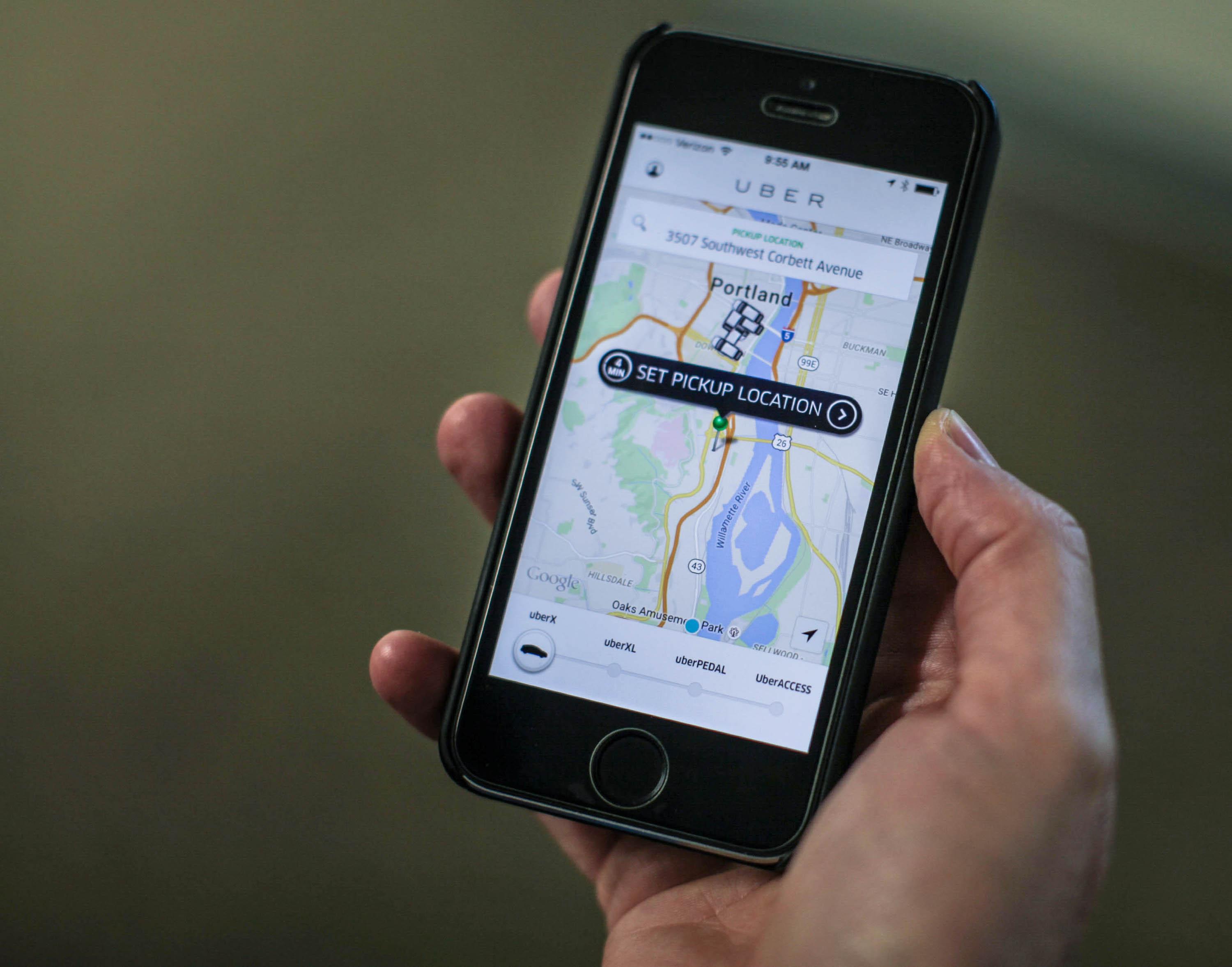
People can summon drivers from ride services like Uber through smartphone apps.
Christina Belasco / OPB
In April, Portland started a four-month pilot program deregulating the taxi industry and allowing ride services Uber and Lyft to operate legally for the first time. It's called the Private For Hire Transportation Innovation Pilot Program and it's set to end in August. Earlier this month, the Portland Bureau of Transportation (PBOT) released a report on data collected from cab companies and ride services.
Monday on Think Out Loud, host Allison Frost spoke with three people involved in the city's transportation experiment.
Mike Greenfield is the chair of the Portland Private For Hire Transportation Innovation Task Force.
"The report confirmed a lot of things that we'd heard anecdotally," he said. "We heard from business owners that there were a shortage of taxis during hours when they wanted to get customers who'd been drinking home without being in their own cars. We'd heard that the supply was limited and I think the report confirmed that there was a pretty big jump in the number of rides and customers."
The report seems to indicate that the increase can be attributed mostly to Uber and Lyft entering the market.
"We've seen a significant reduction in trips," said Broadway Cab President Raye Miles. "In fact we've seen about 30 percent of our trips have gone to other providers. We believe they've gone to Uber and Lyft."
According to Brooke Steger, Uber's general manager for the Pacific Northwest, the company has over 1,000 drivers in Portland.
"Portland has been extremely successful and one of the fastest growing markets we've ever seen," she said.
The city's report also showed Uber and Lyft are falling short on providing wheelchair accessible service. Steger explained that Uber is working to improve access for people with disabilities.
"We launched UberASSIST, which provides additional training to drivers to assist with things like seeing eye dogs (and) folding wheelchairs," she said. "So, really we've done a ton in Portland over the last two and a half months and I think there still needs to be more done. (There's) a lot of room for growth."
According to Greenfield, the task force is considering a specific requirement for wait times when it comes to wheelchair accessible vehicles.
"Once we've laid those requirements down, it will be up to the city to enforce them," he said.
Though it wasn't addressed in the report, a question about drug testing policies revealed a stark difference between Broadway Cab and Uber. Miles explained that Broadway Cab pays between $60,000 and $70,ooo a year for an FDA-compliant drug and alcohol program that involves testing drivers before they are hired and if they get in an accident, as well as random tests.
"It's pretty comprehensive, pretty thorough, and it costs a lot to keep going," she said.
Steger said Uber has a zero tolerance policy for drug and alcohol use among drivers, though the company does not do any drug testing.
"Anytime there is a report (of drug or alcohol use), it's immediately acted upon and we do have the ability to pull drivers off the road extremely fast," she said. "Furthermore, every driver goes through a 10-year criminal background check as well as a driving record check. So, any previous DUI or previous conviction relating to driving while intoxicated or under the influence of drugs would result in them not being allowed to partner with us."
The Portland Bureau of Transportation will hold a listening session Thursday to get public input on new rules for Uber, Lyft, and cabs.
